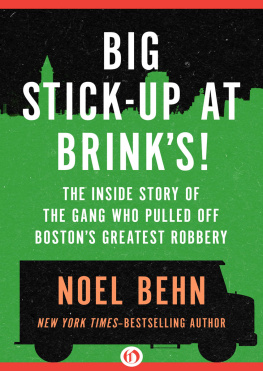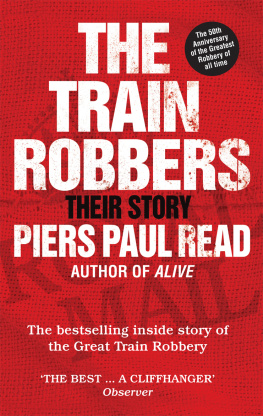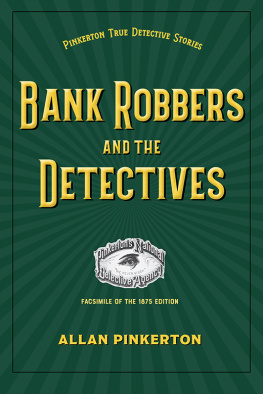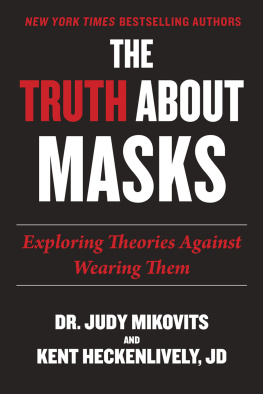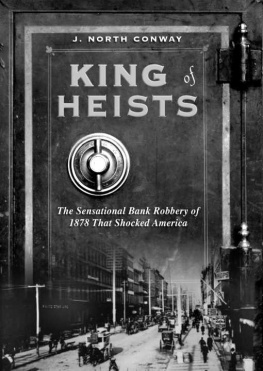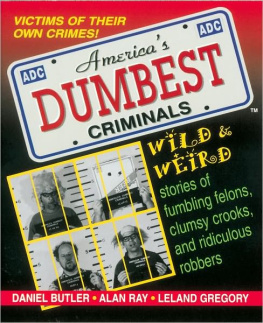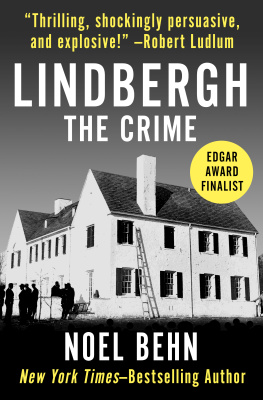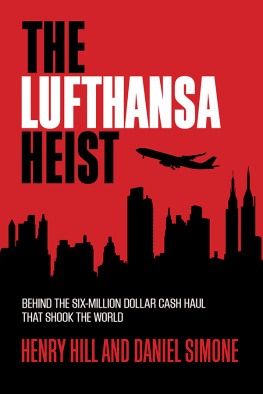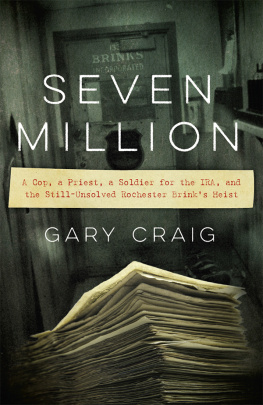About the Author
Noel Behn (19281998) was an American novelist, screenwriter, and theatrical producer. Born in Chicago and educated in California and Paris, he served in the US Armys Counterintelligence Corps before settling in New York City. As the producing director of the Cherry Lane Theatre, he played a lead role in the off-Broadway movement of the 1950s and presented the world premiere of Samuel Becketts Endgame. Behns debut novel, The Kremlin Letter (1966), was a New York Times bestseller and the inspiration for a John Huston film starring Orson Welles and Max von Sydow. Big StickUp at Brinks! (1977), the true story of the 1950 Brinks robbery in Boston, was based on nearly one thousand hours of conversations with the criminals and became an Academy Awardnominated film directed by William Friedkin. Behn also wrote for television and served as a creative consultant on the acclaimed series Homicide: Life on the Street. His other books include the thrillers The Shadowboxer (1969) and Seven Silent Men (1984), and Lindbergh: The Crime (1995), a nonfiction account of the kidnapping and murder of Charles Lindbergh Jr.

EARLY BIRD BOOKS
FRESH EBOOK DEALS, DELIVERED DAILY
BE THE FIRST TO KNOW
NEW DEALS HATCH EVERY DAY!


EARLY BIRD BOOKS
FRESH EBOOK DEALS, DELIVERED DAILY
BE THE FIRST TO KNOW
NEW DEALS HATCH EVERY DAY!

Chapter One
Return of a Thief
September 12, 1944:
Youve got to ax-centuate the positive, Johnny Mercer sang from the Philco cathedral radio.
EE-liminate the negative, added Bing Crosby.
And dont mess with Mr. In-Between, they both warned as five-foot six-inch, 170-pound Tony Pino let his gray jute trousers drop to the slat-wood floor, stepped out of them, bent to make recovery, momentarily forgot to breathe through his mouth and, by forgetting, sucked in a nostril full of shit trench stink which permeated the long, low, frigid second-floor supply room. He flashed a ticlike wince which always tautened his pudged-moon face into what appeared to be a mocking grin, resumed inhaling by mouth, grabbed up the trousers, tossed them onto a pile of already-discarded gray jute prison garb and stood sway-backed and potbellied and naked. Stab wounds ran along his thick neck and flabby left shoulder. There were bullet scars in the fleshy left buttock and thigh. He coughed to get the guards attention. He coughed again. The belly heaved again.
The supply room guard hitched a thumb toward a high shelf, leaned forward and turned up the radios volume. A 9 A.M. newscast began with word that Hitlers Fortress Germany had been invaded by General Patchs rampaging First Army.
Pino rose up on his tiptoes, brought down a newly postmarked carton. By the time General Pattons Third Army had penetrated the impenetrable Siegfried Line and British forces were dashing into the Lowlands he was dressed in a baggy, creased blue serge suit, white-on-white Arrow shirt, dotted tie and a pair of seven-year-old but never worn Florsheim shoes.
The guard summoned a runner, filled out a yard pass and as an afterthought said, Good luck.
Pino flashed his ticlike grin, plucked the pass from the guards finger and grabbed up three comic books and a copy of Popular Mechanics. He led the way down the steps and out into a vast and hazy prison enclosure dominated by looming, hand-hewn granite block structures grown mawkish red-black with age and coal smoke drifting in from railway yards beyond the twenty-foot-high turreted and guard-mounted walls. He continued breathing through his mouth as he waved an expansive good-bye to the contingent of Crap Brigade cons hosing out the thousand-odd cell-numbered toilet buckets near an open latrine trench.
His pass was presented at the rotunda building. A screw opened the gate in the wire mesh barrier, and Pino stepped past, leaving the runner behind; he climbed the circular staircase, waited while another wire mesh barrier was opened, strode up a corridor and entered the guardroom without knocking. He ignored two burly civilians seated on a far bench, went to a door, knocked and in his raspy, slightly high-pitched voice announced, Pino, Anthony.
A clerk guard emerged munching a sandwich, dropped a sheath of papers onto the desk and said Sign at the Xs.
Pino signed without reading, opened an envelope, removed and counted $600, the rebate from his commissary account, argued he was entitled to an additional $10 he knew damn well was awarded only to convicts with no known source of income, finally abandoned his demand, pocketed the money, stood waiting.
The clerk countersigned several of the forms, tore off parole board copies, held them out.
After having served six years, eight months and six days of two consecutive three- to four-year sentences for the crime of breaking and entering in daytime with intent to commit a felony, as well as possession of burglary tools, Antonio Pino, alias Anthony Pino, Tony Pino, Anthony Pirro and John Gurno, had paid his debt to the Commonwealth of Massachusetts and was therefore officially rehabilitatedon parole for two more years, but a free man.
He stepped across the room to where the two burly men were standing and held out his wrists.
Sorry, Tony, the larger of the federal marshals said while the smaller man jerked Pinos arms around and up behind his back and clamped on a pair of handcuffs.
What the hell, youre only doing your job, Tony replied.
Dont worry, the larger federal officer whispered, holding open the rear door of a car parked at the base of the rotunda building, I hear theyll have you out before the day is over.
Threat of reincarceration seemed to have little effect on Pino as he rode away from Massachusetts State Prison, better known as Charlestown since it stood in the Boston district of that name. He had spent better than a fourth of his thirty-eight years in state penal institutions, as the result of three separate convictions. Two of the terms he had served exceeded one year in duration, thereby warranting his present federal arrest for an infraction committed when he was less than a year old.
Anthony Pino was born on May 10, 1907, near the tiny vineyard village of Divieto, Province of Messina, Sicily. His father was away in America. The delivery was performed by a midwife and occurred in a dirt-floor shanty his family had occupied for generations, but to which they never held title. A local priest registered the birth.
Had Tony remained on the padrone-owned soil of his forebears, he might not in all his years have traveled more than twenty miles from Divieto. Like his father and grandfathers and great-grandfathers, Tony unquestionably would have become a tenant farmer and tended the padrones grapes from dusk to dawn. More likely than not, he would have been denied an education since that was the way it was with the eldest child of a peasant familythe eldest worked so the younger might have free hours in which to receive rudimentary schooling. Tonys father, Francesco, was an eldest child and was illiterate. His mother, Katerina Arena Pino, was also an eldest child and illiterate.
Next page
